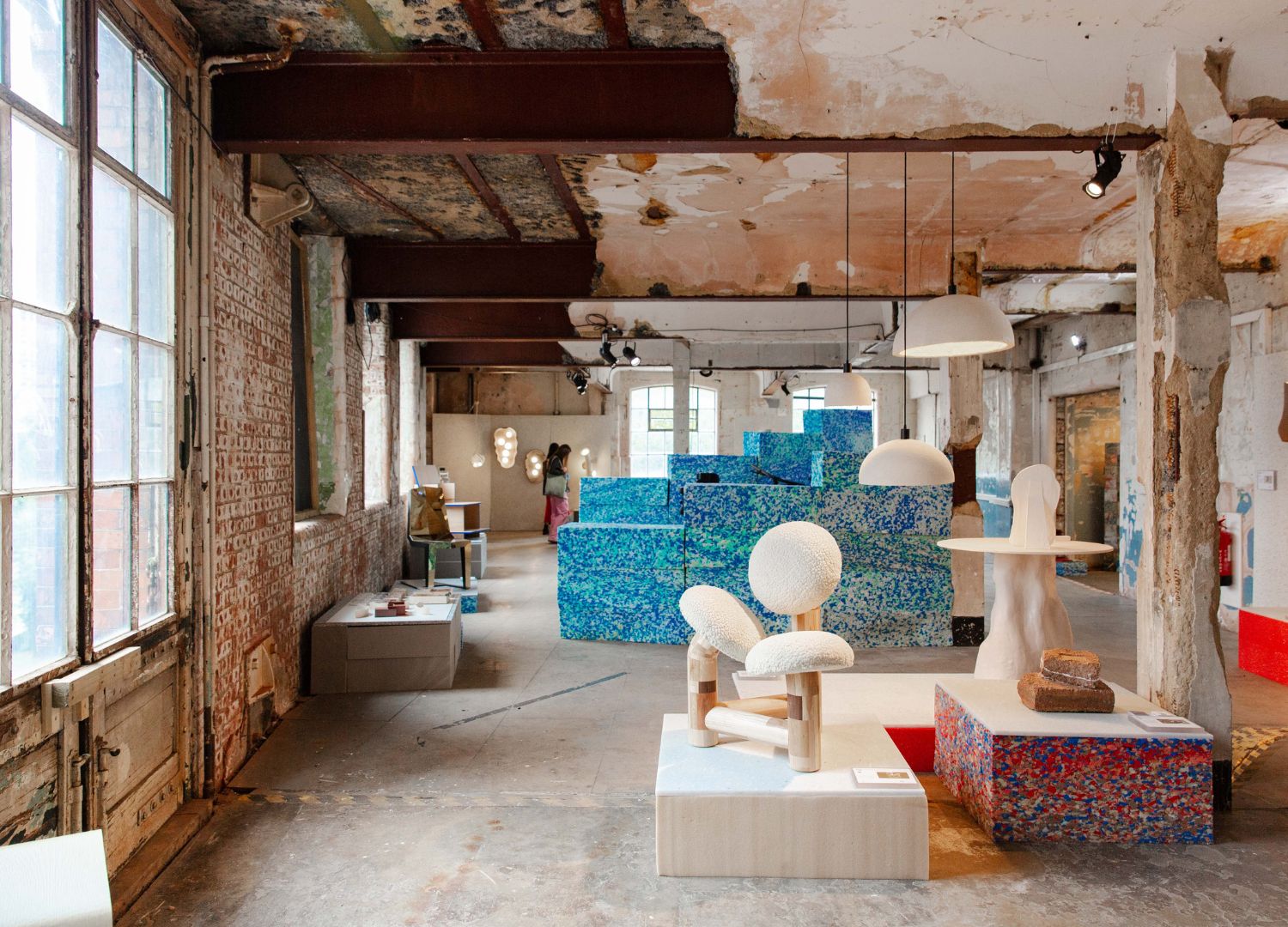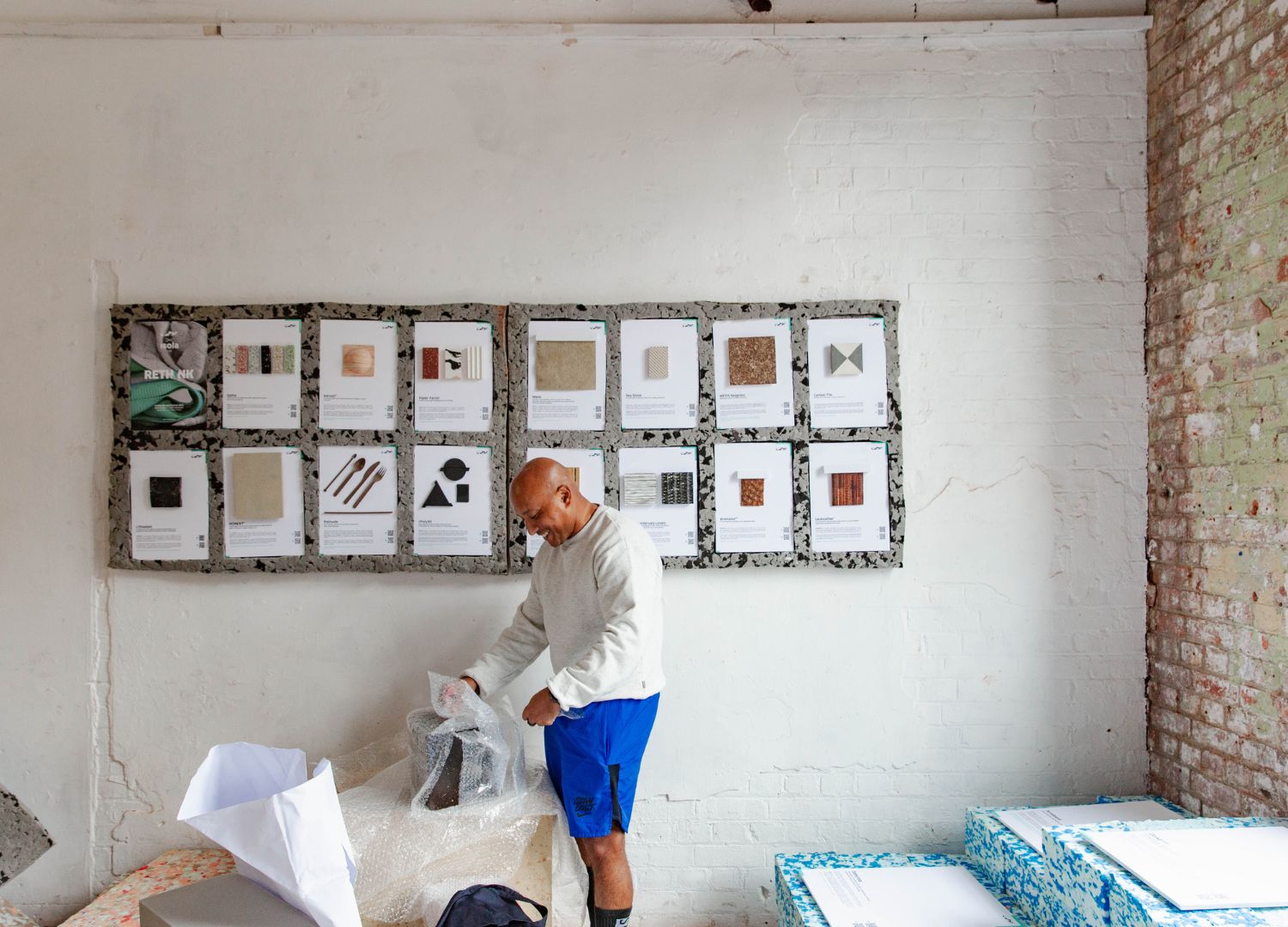A pliable city rooted in principles of regeneration and eco-sustainability
This is the concept that inspired the Italian design studio IAMMI when they crafted their exhibition project for Isola Design by harnessing the power of innovative materials

What should the city of the future look like? In a vision brought to life by the IAMMI studio, in collaboration with the exhibition curator Elif Resitoglu (Isola Design’s co-founder), they encapsulate an idea that many now see as pivotal: the use of recycled/upcycled materials capable of rejuvenation after use, modular and easy to dispose of.
Founded by Nicolau dos Santos and Stephanie Blanchard, the studio’s primary aim is to blend classic and contemporary design elements by exploring fresh and unconventional combinations. This approach seeks to push the boundaries of conventional design, evoking emotions through a sense of irony and provocation.
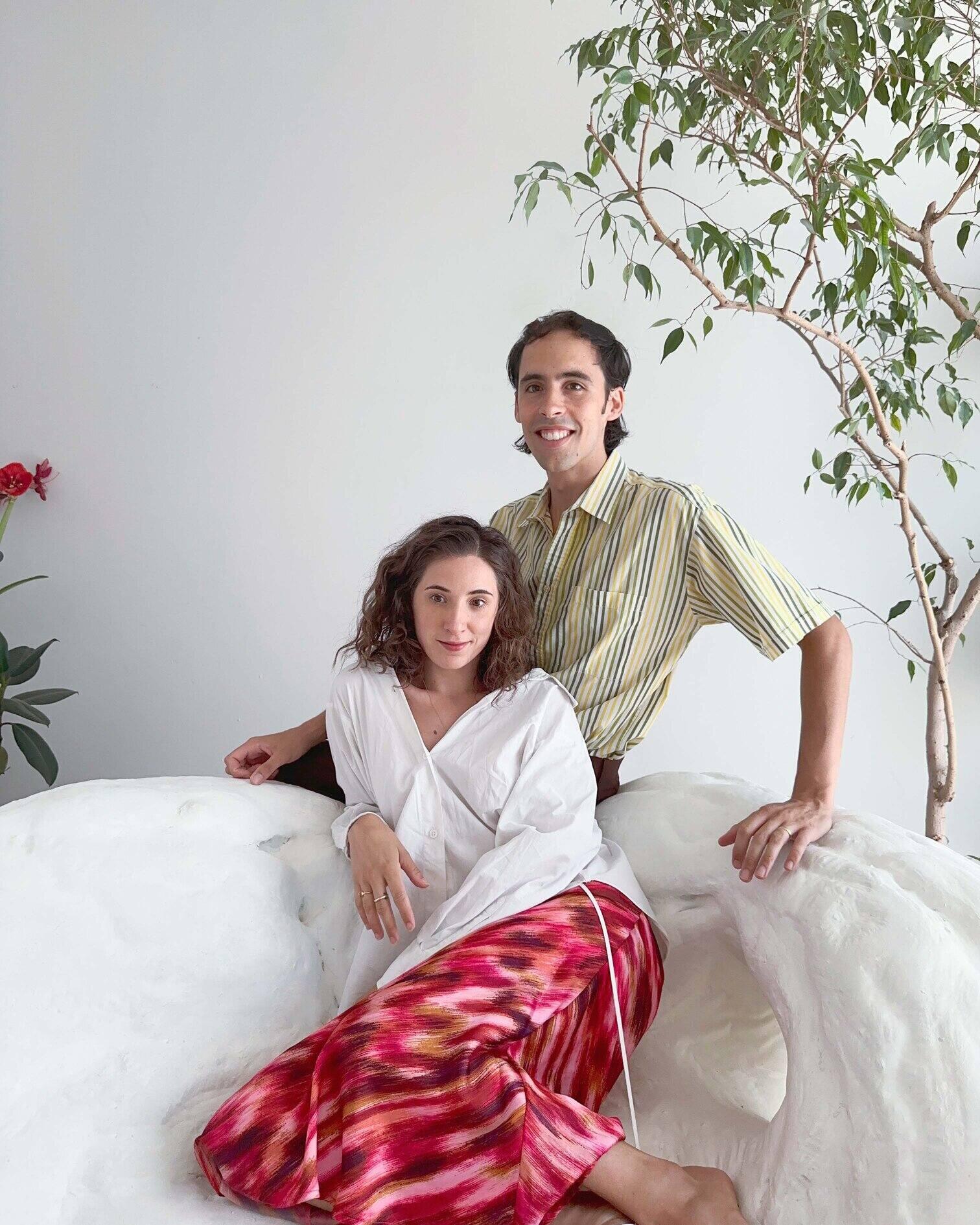
On the occasion of Isola Design’s exhibitions at the London Design Festival and the upcoming Dutch Design Week, IAMMI has metaphorically conceived a modular and sustainable city, utilizing cutting-edge materials from The Good Plastic Company and Re-mat.
This partnership between IAMMI and Isola Design has given birth to an exhibition area (at LDF) divided into two parts: on one side, the “Soft City,” where Re-mat’s material is crafted and used for product installations; on the other, the “Blue Metropolis” bar, made with the Polygood material, represents the historic heart of the city where people gather, have a coffee, and chat.

This combination of materials and its reinterpretation highlights the selection of projects that Isola Design is showcasing in London for the first time, with the ambition of carrying the same concept into future exhibitions organized by them.
It’s a smart and forward-thinking approach that aligns with the times we live in, placing materials not just for illustrative purposes but as true protagonists that are genuinely applied according to sustainability and upcycling principles.

I reached out to the founders of IAMMI to have a chat about how the project came to life and what inspired them during its development, as well as to gain a better understanding of their approach to design.
How did your collaboration with Isola begin?
IAMMI:
“Our collaboration with Isola began when we first participated as exhibitors at one of their events, which took place at the Fabbrica Sassetti space. During that event, we had the chance to get to know Isola’s co-founders, Elif Resitoglu and Gabriele Cavallaro, and we immediately found a great rapport with them.
This positive connection led us to showcase a new project in the following edition, which involved recycled foam rubber materials. As time passed, our collaboration grew stronger, and we’ve continued working together up to the present day. With Isola’s co-founders, we realized the great potential of our partnership, and that’s how our collaboration has evolved.”

What defines your work? What does the IAMMI studio specialize in?
IAMMI:
“We love to design based on a concept rather than following current trends. We believe that the environment in which we live has a significant influence on us as individuals. From this perspective, we think about how the products we create can have a positive impact and meaning for those who purchase them.
For example, the cloud-shaped sofa we designed, part of the Clouds collection, originated from the idea that people often lead hectic and stressful lives and may want to disconnect for a while, figuratively “putting their heads in the clouds” to relax. It’s a playful design that resonates with how people actually live and often feel.
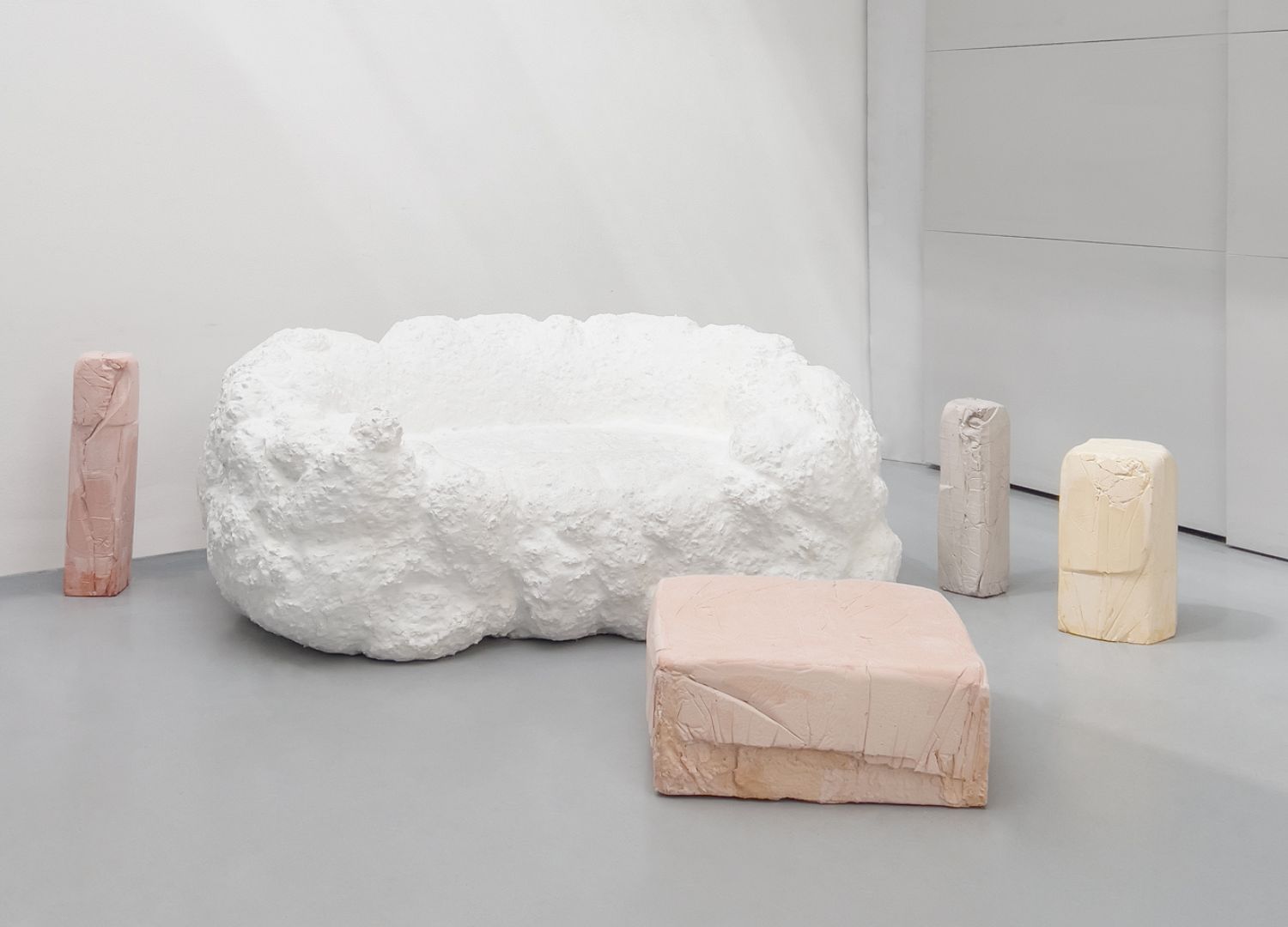
Moreover, our approach to design aligns with our ethical principles. It often begins with the search for materials with specific characteristics, such as recycled or upcycled materials. The idea is to collaborate with companies outside the design field and encourage them to develop projects that we find interesting, ones that can open new horizons and have a broader impact.
IAMMI creates prototypes or small collections that demonstrate the potential of a material. An example of this is our collaboration with the Turin-based company Re-Mat, which repurposes old mattresses and scrap foam rubbers to create a new material for us designers to explore.
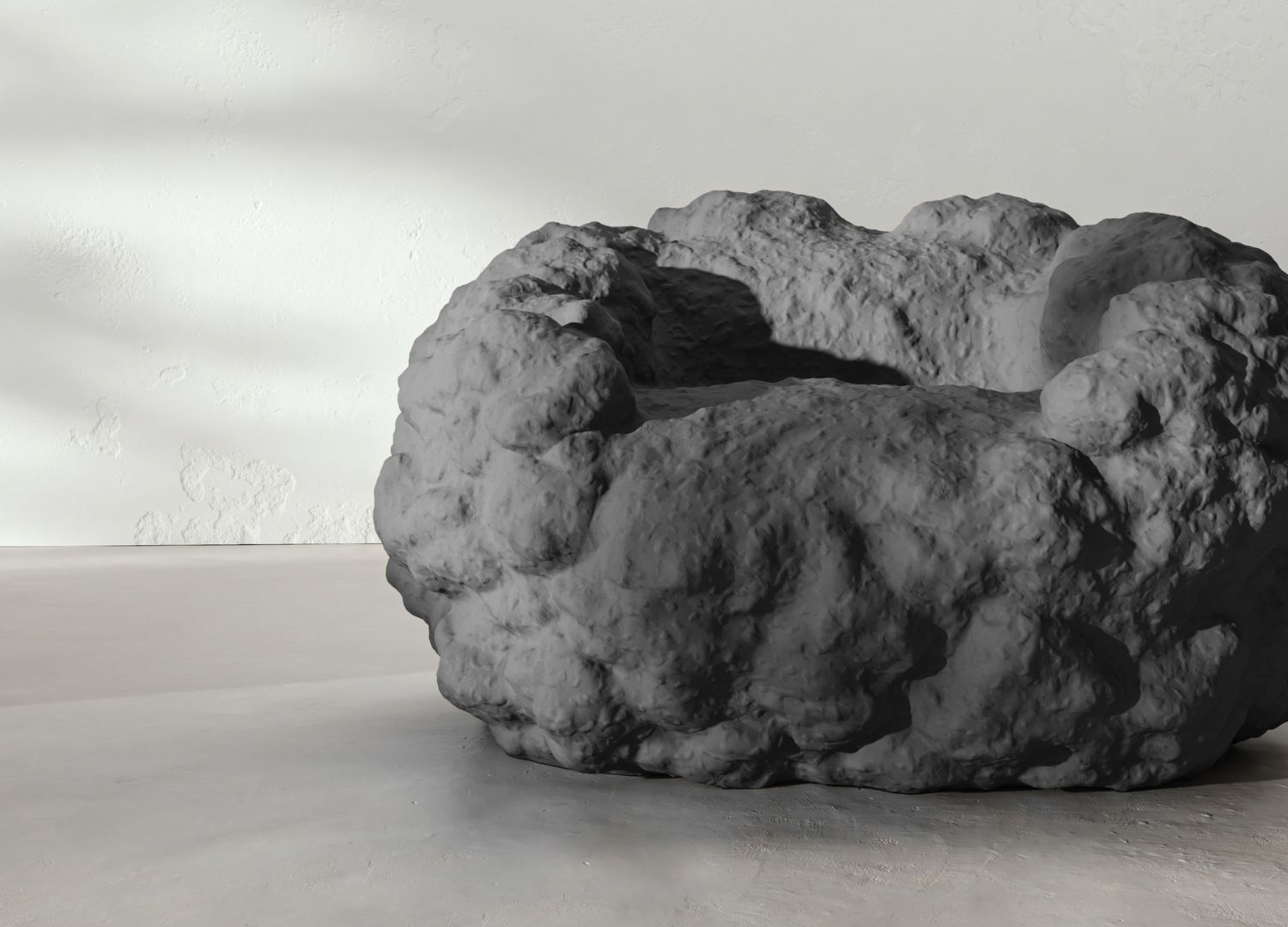
We believe that through our intervention, or that of others like us who experiment, new avenues can be opened up for material companies on a larger scale. Establishing these type of collaborations isn’t always easy, but thanks to Isola, new opportunities are emerging, making it easier to access new materials and bring new projects to life. This is happening because companies are promoted within Isola’s events and, consequently, are encouraged to provide their materials for transformation into exhibition projects.”
Can you tell me more about the exhibition project you created for Isola, which will come to life at the London Design Festival and Dutch Design Week?
IAMMI:
“In essence, we’ve created a modular and recyclable city.
Our first partner in this venture was Re-mat, a company founded by two young individuals in Turin who’ve established a unique business by repurposing discarded mattresses and scrap foam rubber from large companies. From these materials, Re-mat has developed a novel material—a kind of foam board created by compressing and melding together pieces of foam rubber. It can be sculpted and molded to suit various purposes.

We first encountered Re-mat when we designed our cloud-shaped sofa, and they seemed like the perfect partner to involve in Isola’s exhibition space in both London and Eindhoven, especially given our prior experience with them.
From this collaboration, the concept of a “Soft City” was born, a pliable city rooted in principles of regeneration and eco-sustainability. Re-mat’s material was used to craft the exhibition’s modular pedestals, making them reusable for continuous presentations.
Simultaneously, we engaged another materials company, The Good Plastic Company, and their product, Polygood, made entirely from recycled plastic, to bring our bar project, the vibrant heart and historic center of the exhibition space, known as “Blue Metropolis,” to life. Polygood is an incredible material with a wide range of textures, colors, and possibilities for creative expression.
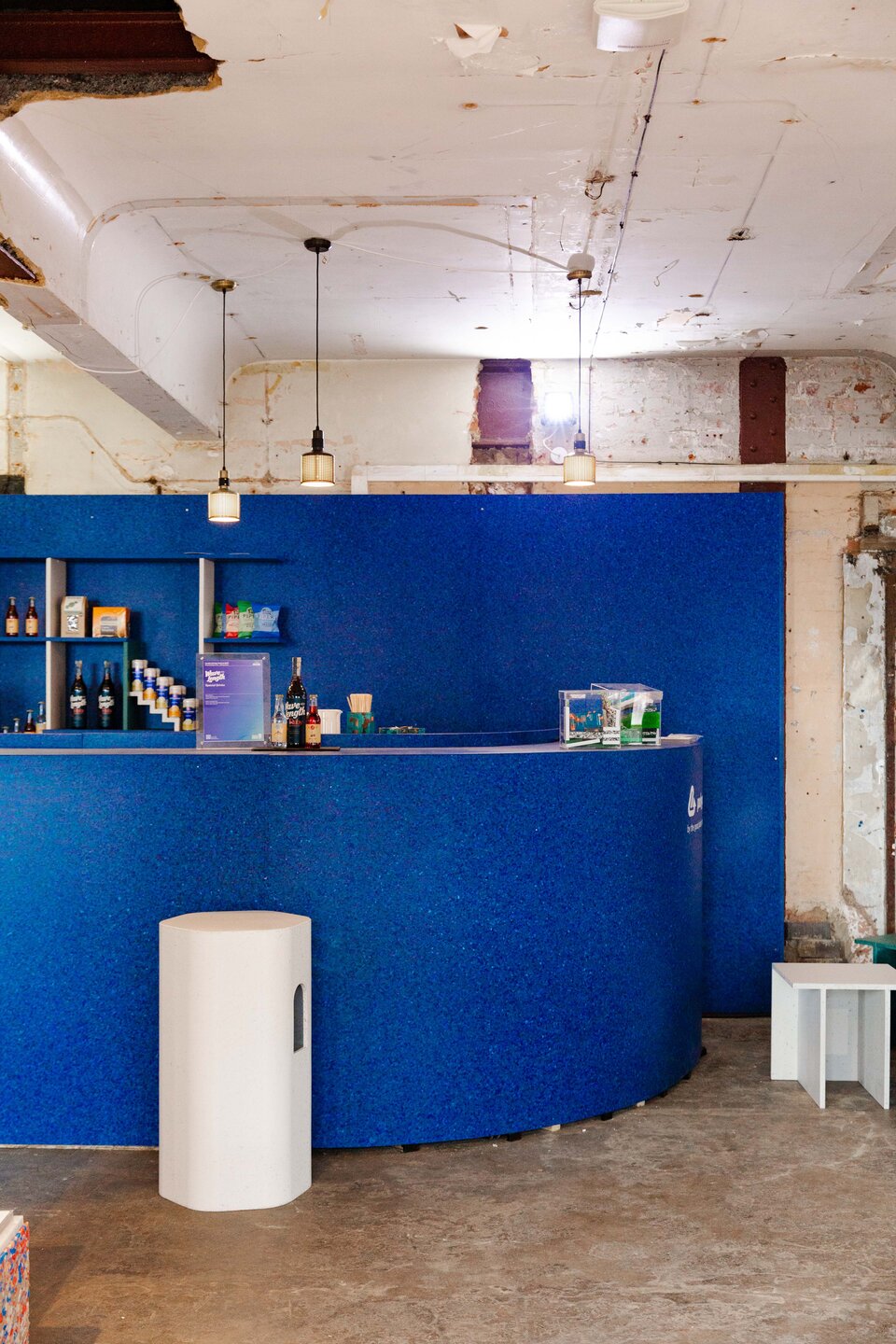
In summary, thanks to our collaboration with Re-mat and The Good Plastic Company, we’ve fashioned an exhibition space reminiscent of a city. The bar, “Blue Metropolis,” stands as its historic center, reinforced with plastic to provide durability and solidity. In contrast, the elements surrounding the historic center, the installations, maintain a softer aspect—hence the name “Soft City,” thanks to the use of Re-mat’s material.
In this exhibition metaphor, we emphasize the importance we believe materials hold even within real cities, which should increasingly draw inspiration from concepts like recycling and upcycling.

What’s intriguing about all the installations is the interplay between these two materials: soft on one hand, with the density of foam rubber, and rigid on the other, due to the Polygood panels. It’s a novel approach to using these materials that complement each other exceptionally well.
They both can be returned to their raw form and reused or reconfigured for other exhibition spaces. The opportunities are truly abundant.”
Is the work done for Isola something that can be extended to larger exhibition contexts, such as the traditional fairs?
IAMMI:
“As designers, we are always on the lookout for new materials to experiment with. However, they come at a cost. So, if there were a way to reclaim the exhibition elements at the end of trade shows, it would be fantastic. Quite simply, what could be done is to provide young designers with the panels, materials from the set designs, and more, allowing them to take them home and create whatever they want.

That’s why I say yes, even larger events could adopt a similar approach, especially when considering the disposal of exhibitions at the end of a trade show, which often end up being discarded rather than recycled.
Moreover, the same companies exhibiting could recover a significant portion of their setups and repurpose them. We believe it’s primarily a matter of communication. If trade shows and companies were to connect with designers, there would undoubtedly be untapped opportunities.

Keep in mind that our generation of designers is very mindful of the culture of recycling and upcycling, so many studios or freelancers would be delighted to have zero-cost materials to work with on their projects. I must admit, though, that many companies are slow to adapt and remain entrenched in traditional business models, often not fully grasping this trend.”



